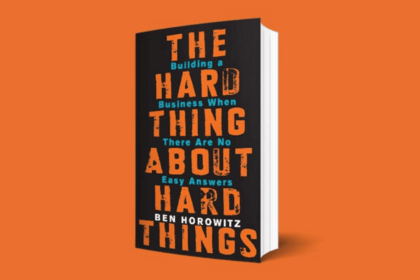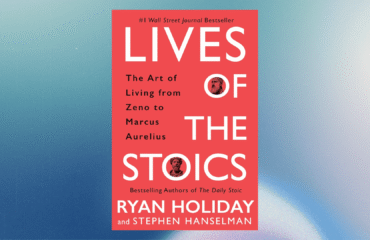
In today’s fast-paced startup environment, entrepreneurs face daily decisions that can make or break their business. One common challenge, as seen in the rise and fall of tech companies over the past year, is managing uncertainty and chaos.
Ben Horowitz’s The Hard Thing About Hard Things offers a brutally honest take on the difficult aspects of running a startup that most business books tend to gloss over.
Book Overview
The Hard Thing About Hard Things by Ben Horowitz is not your typical business guide. Known for co-founding Andreessen Horowitz and having led Opsware to a $1.6 billion acquisition, Horowitz uses his personal experiences to provide insight into the grueling process of building and running a startup.
For early-stage founders, this book is especially relevant, offering practical advice on navigating the inevitable hardships that arise in the world of entrepreneurship.
Summary
At its core, this book focuses on the reality that there are no easy answers to the problems entrepreneurs face. While many business books provide frameworks and tips, Horowitz emphasizes that the hardest challenges—the “hard things”—often come with no clear solution.
The book is filled with real-world examples of how Horowitz handled layoffs, near-failure, and intense competition while offering guidance on leadership, decision-making, and culture building. His direct approach appeals to startup founders who are looking for unfiltered advice on how to survive and thrive in turbulent times.
Key Takeaways
The Hard Thing About Hard Things offers a variety of powerful lessons that every founder can apply to their journey:
– Embrace the struggle: Leadership is not about having all the answers but about tackling the tough challenges head-on.
– There is no formula for success: Each company and situation is unique, requiring a customized approach.
– Create a strong company culture: The importance of building a resilient team that can adapt to rapid changes.
– Be prepared to make difficult decisions: Founders must learn how to make unpopular yet necessary choices for the survival of their startup.
– Focus on leading when there is no clear path forward: The book emphasizes the importance of leading with conviction during times of uncertainty.
Quotes from the Book
1. “The hard thing isn’t setting a big, hairy, audacious goal. The hard thing is laying people off when you miss the goal.”
2. “There’s no recipe for really complicated, dynamic situations.”
3. “If you’re going to eat shit, don’t nibble.”
These quotes resonate with startup founders who understand that the entrepreneurial journey is filled with tough decisions, many of which are painful but necessary.
Practical Applications
For early-stage founders, here are some actionable applications of Horowitz’s lessons:
– Decision-making under pressure: Horowitz emphasizes that founders must often choose between two bad options. The lesson here is to embrace tough decisions rather than delay them. A founder dealing with a cash flow crisis, for example, might need to make difficult cuts early rather than risking the entire company.
– Company culture during rapid growth: Building a culture that can withstand rapid changes and adversity is crucial. If your startup is scaling quickly, creating a culture of transparency and resilience will help maintain cohesion.
– Dealing with failure: Horowitz’s experiences show that failure is an integral part of success. For a founder experiencing their first significant setback, this insight can help them view failure as a stepping stone rather than the end of the road.
Strengths
The Hard Thing About Hard Things has garnered praise for its no-nonsense approach to entrepreneurship. Startup founders appreciate its candid tone and its focus on the reality of running a business, rather than sugar-coating the challenges.
– Actionable insights: Unlike many business books that offer theory without practice, this book provides real, actionable advice.
– Relatable scenarios: Founders who have faced layoffs, competition, and near-bankruptcy will find comfort in the stories Horowitz shares from his own experience.
– Leadership guidance in tough times: The book provides valuable leadership advice for founders in the trenches, offering a sense of camaraderie to those facing difficult circumstances.
Weaknesses
Despite its strengths, some founders note that *The Hard Thing About Hard Things* falls short in a few areas:
– Not industry-agnostic: Some readers have mentioned that the examples heavily focus on the tech industry, which may not be directly applicable to founders in other sectors.
– Too pessimistic: For those looking for more optimism or motivational content, Horowitz’s hard-nosed approach might come off as discouraging.
– Lack of clear frameworks: Some critics argue that while the book offers great insights, it lacks a structured approach for founders seeking step-by-step guidance.
Questions for You
As you reflect on the lessons from *The Hard Thing About Hard Things*, consider how the insights apply to your startup:
– What is the hardest decision you’ve had to make in your business so far, and how did you handle it?
– How do you approach building a strong company culture while dealing with uncertainty and rapid growth?
– Which strategies from the book resonate the most with your current business model, and why do you think they will be effective?
These questions can help you evaluate the assumptions in your business strategy and prompt you to apply the book’s lessons to your real-world challenges.
Join Our Founder Network
Are you navigating the tough decisions that come with building a startup? Join our Founder Network, where you can connect with like-minded entrepreneurs and gain access to expert advice on applying the insights from The Hard Thing About Hard Things. Together, we can help you implement these lessons, tackle the hard things head-on, and build a more resilient business.




